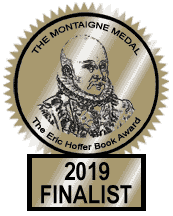
Concerning the Current State of Affairs in Post-secondary Humanities Departments:
A Lecture and Supporting Essay about the Relevance of Liberal Arts Curricula
In the contemporary environment, many people challenge the relevance of education, and particularly of the liberal arts. Privatization and deregulation proponents since the 1980s continue their efforts to force everyone and everything into a Procrustean bed of conformity with for-profit production. The latest casualty in this war has been the education profession, probably the least likely candidate to benefit from these dumbed-down, barbaric tactics of incompetent management. Regardless, the destruction continues unabated.
From the US Review of Books:
Langtry has published a treatise on the reasons for returning liberal arts to the modern-day college curriculum. Originally published in a 2014 journal, the author has chosen to increase exposure of his arguments by presenting them inside this book. The chapter headings address three main arguments as to why the liberal arts fell out of favor and why they should be restored. Each heading voices a question followed by the author’s answers, which average 10-15 pages. The format for answers is a series of pro and con statements with quotation(s) from an advocate or opponent.
Conclusions reached by the author end each chapter. For example, the statement that Enron sought alternatives to normal established financial processes is preceded by the Securities and Exchange Commission’s (SEC) mission statement and followed by an article on Enron’s Special Purpose Entities (SPEs) demonstrating the moral bankruptcy of its executives. The author’s conclusion is that teaching the liberal arts and the value systems of millennia to these few men could have prevented loss to millions of Americans.
The terms the author uses are helpfully explained as they pertain to the treatise: for example, andragogy (teaching the student what he/she knows); authentic pedagogy vs. interactive pedagogy (teaching humanities rather than technology); objectivism vs. constructivism (teaching that reality is based on absolute values rather than derived from internal values). Langtry’s ideas have obviously attracted some attention as is evidenced by the appendix which contains a supporting 2017 article in which Professor Drazdauskiene quotes with attribution from Langtry’s 2014 presentation. The author’s viewpoint is clearly discernible, but additional chapters and summaries might prove useful in clarifying his arguments.
"Relevance of the Liberal Arts in Twenty-First Century Academics" was written in support of the June 2014 lecture "Questionable Foundations and Quality in the Humanities," presented by Dr. Marija Liudvika Drazdauskiene of Wszechnica Polska Univeristy, Warsaw, Poland. This essay seeks to answer three related questions:
- Why has the liberal arts tradition fallen out of favor in the education profession?
- What does the evidence indicate regarding the results of this development?
- What evidence supports the argument that restoring the liberal arts foundation to education would benefit interested parties?
The print version is available now on the publisher's website, and via Amazon, Barnes & Noble, and all the major online book distribution outlets.
Return to the Independent Publications and Publishers page.




